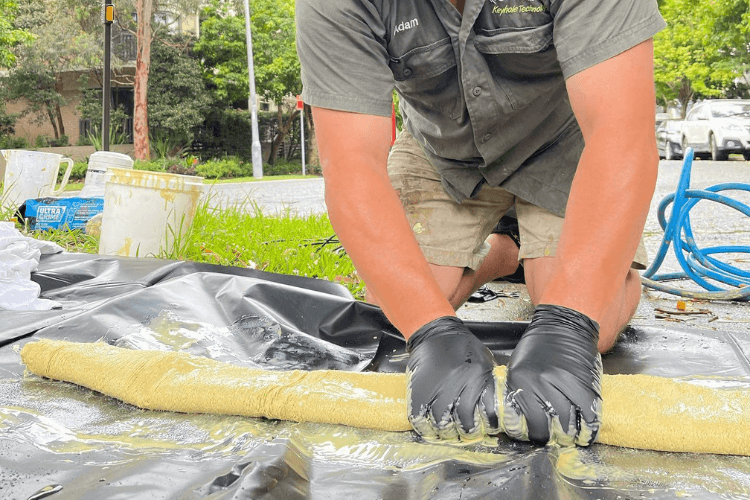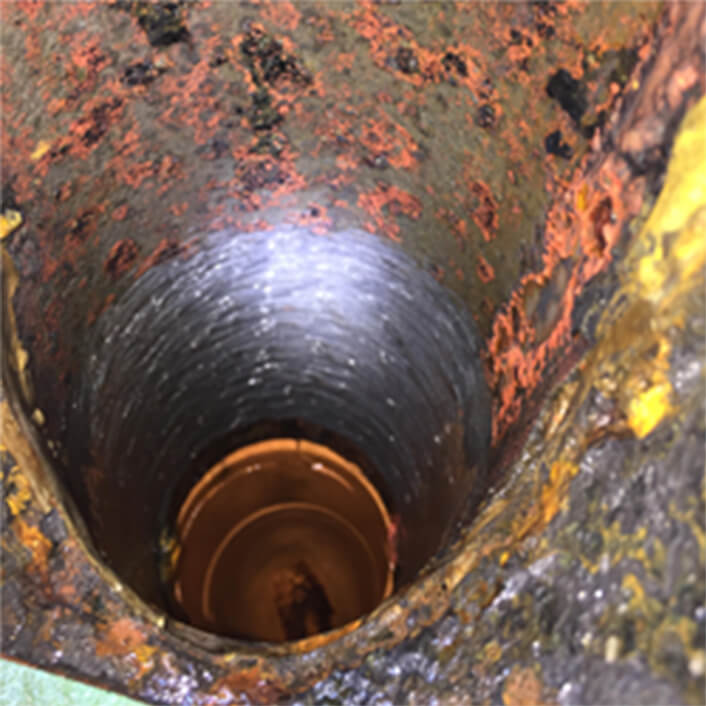You come home after a long day at work and step into the shower to wash the day away. But instead of the nice, clean, steamy shower you were expecting, you realise the water is a dirty brown, and you can taste the metallic quality of the water.
Sound familiar? You’re most likely dealing with rusty pipes, an issue that many people across Sydney face, particularly in older-style buildings.
While rusty pipes are not usually harmful to our health, rusty water can damage appliances like washing machines and dishwashers—and let’s face it, nobody wants to bathe in orange, metallic water.
Perhaps more worrying, the longer rusty pipes go unchecked, the more likely they are to cause major plumbing issues. Early intervention is the key here, protecting your water quality and overall plumbing system and saving you time and money in the long run.
Signs Your Pipes Are Rusty
Rust can lie dormant in your pipes without any signs for a time, but it doesn’t hide forever. Eventually, it makes itself known in ways that are hard to ignore.
There are some classic signs you can look out for that may indicate that rust is the culprit in your water issues.
Brown or discoloured water: Perhaps the most obvious sign of rust in your pipes is when you start to see brown or orange-tinged water coming out of your taps. Rust particles breaking off inside the pipes are the villains here, discolouring the water and giving it that unpleasant metallic taste and smell.
Frequent clogs or leaks: As rust builds up, it can restrict water flow, which leads to clogs. Small leaks are also common, as rust corrodes the metal and weakens the pipes.

Low water pressure: There’s nothing worse than stepping into the shower and finding yourself under a trickle of water rather than a strong, steady stream. Rust particles and corrosion are often to blame here as these issues restrict water flow and reduce water pressure.
Unpleasant taste or smell in water: Rust can add a metallic or musty taste and smell to your water, which is far from ideal for both drinking and bathing.
Tools and Materials Needed for Fixing Rusty Pipes
If you’re planning on tackling rust on your own, you must get yourself prepared with the right tools and safety equipment. Here’s what you need to get started:
Pipe wrench: The home plumber’s best friend, a pipe wrench is a must-have for loosening and tightening pipe fittings.
Sandpaper: Sandpaper can be used to scrub away surface rust from exposed pipes.
Rust remover: A quality rust remover solution is essential to help dissolve rust from the pipe’s surface.
Safety equipment: If you catch the problem early enough, dealing with rust yourself can be relatively simple. However, you will need to take some simple safety measures. Always have gloves and goggles on hand to protect yourself from chemical exposure and accidental splashes.
DIY Methods to Fix Rusty Pipes
There are some effective DIY approaches you can take for tackling minor rust issues. For larger problems, it’s always best to consult a professional. However, these methods can be effective for small-scale rust management.
Cleaning the Rust Off the Pipes
Cleaning visible rust off pipes is a straightforward process that can improve water quality and extend pipe life. Here’s how to do it:
- Turn off the water: Always start by shutting off your water supply at the source to avoid mess and keep yourself safe.
- Scrub the rust: Use sandpaper to scrub away any rust that is visible on the pipe’s surface.
- Apply rust remover: Carefully follow the instructions on your rust remover to avoid damaging your pipes. Make sure the rust remover you’re using is safe for all of your plumbing applications and appliances.
- Rinse and dry: After the rust remover has set, rinse the area with water and dry it completely to remove any residue.
Using a Rust Inhibitor
To prevent rust from returning, a rust inhibitor can be applied once you’ve cleaned the pipes. This adds a layer of protection, helping to slow future corrosion.
- Apply evenly: Always follow the manufacturer’s instructions and apply evenly when coating the pipes with the rust inhibitor. This will help to create an all-over moisture-resistant barrier.
2. Allow it to dry: Let the product fully dry before turning the water back on. This will ensure the product bonds properly to the pipe’s surface—otherwise, you risk wasting your time.
Repairing Small Leaks
When you spot a small leak, quick action can save you from more extensive repairs down the track. Use these steps to manage leaks temporarily:
- Assess the damage: Check whether the leak is small or indicative of a larger issue. While minor leaks can be patched, more severe cases will need professional repair or pipe replacement.
2. Apply epoxy of pipe repair tape: For small leaks, these materials provide a temporary seal for minor leaks.
When to Call a Professional
DIY solutions are great for small issues, but there are some situations where calling a plumber is the best course of action:
- Widespread rust and corrosion: If you see rust covering a large portion of your pipes, it’s likely time for pipe relining or, in some cases, a full pipe replacement.
- Consistent low water pressure and major leaks: If you find yourself dealing with consistently low water pressure or there are large leaks, you’re likely dealing with extensive damage that DIY fixes won’t be able to handle.
While professional repairs may seem expensive at first glance, delaying them always leads to bigger problems and escalated costs in the long term.

Professional plumbing services can assess the situation, find the most cost-effective solution and save you the hassle of repeated repairs and the risk of water damage around affected areas.
Is it Time to Get Serious About Your Rusty Pipes?
Rusty pipes are more than just an inconvenience, they can lead to major plumbing issues when left unchecked. Prevention is always better than cure here, and early intervention via DIY methods or professional help will help you maintain a healthy, efficient plumbing system.
At The Relining Company, our experienced professionals are here to answer your questions, give you advice and help you choose the best option for your plumbing problems. Contact us today to get started.
Back to Top